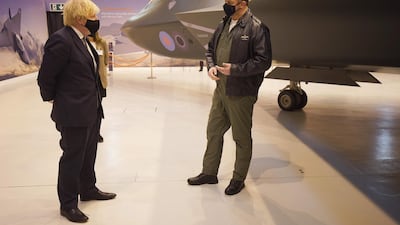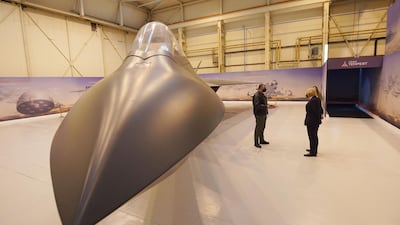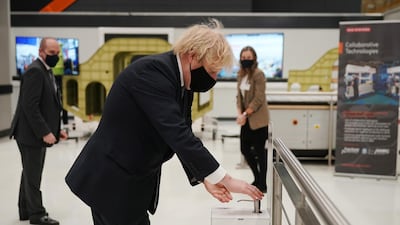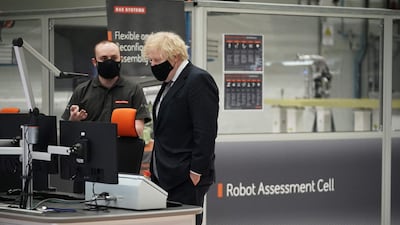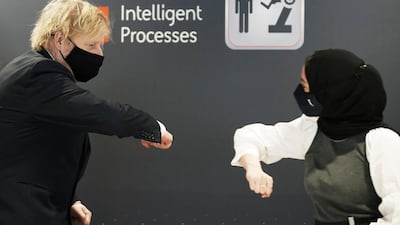The British military will have “fewer troops, fewer ships and fewer planes” as its army shrinks to its smallest in 300 years, it was disclosed on Monday.
The latest review revealed the Ministry of Defence will make significant cuts to try to make the military a modern and agile force.
But critics said the reduction went too far, damaging Britain’s standing with its allies and conceding ground to its enemies.
The command paper on the armed forces' future was announced to Parliament by Defence Secretary Ben Wallace, with confirmation that the army’s strength would be reduced by 10,000 to 72,000 troops.
The number of advanced F35 jets will also be reduced to 48, almost a third of the original plans, and the Royal Navy will for a few years have fewer ships while new vessels are built.
Mr Wallace was unrepentant in his decision to have a leaner army, which he said would be better equipped for future wars.
In a strong criticism of his predecessors, the former Scots Guards officer said that during the Cold War the army had three armoured divisions in Europe on paper, but that this was a “hollow force”.
Mr Wallace accused colleagues of playing “top trumps” with false numbers, and said there was “no point boasting about numbers of regiments when you send them to war in Snatch Land Rovers”.
He was referring to weak armoured protection for British troops in Iraq and Afghanistan.
The military had to change because failure to do so would “risk irrelevance and defeat as the threat changes", Mr Wallace said.
He said £188 billion ($260.52bn) would be spent on defence over the next four years, a substantial increase of £24bn which meant that unlike other reviews it was not “over-ambitious and underfunded, leaving forces that were overstretched and under-equipped”.
The thinned ranks of the army was a shift from “mass mobilisation into the information age”, Mr Wallace said.
The army would receive £23bn for its modernisation and be organised into seven brigade combat teams, made up of two heavy brigades – one deep strike, one air manoeuvre – and two light, plus a combat aviation brigade.
Special forces will be enhanced with a new Special Operations Brigade built around four new Ranger battalions of 250 men each, all drawn from current infantry.
“Together, they will create a global response force for both crisis response and war-fighting,” Mr Wallace said.
The lessons from the wars in Libya and Syria showed that tanks were now highly vulnerable to missile-equipped drones.
Therefore, the British tank force was being reduced by more than a third to 148 upgraded Challenger 3 tanks.
More money will be spent on electronic warfare, air defence, and offensive cyber and surveillance drones.
There would be no loss of regimental “cap badges” in the restructure as the troop numbers were reduced over the next four years.
While Mr Wallace said the “new structures require fewer units”, former head of the armed forces, Lord David Richards, said it would prove “an asymmetric attraction to one’s opponents” and leave Britain unable to fight the Gulf War or Iraq War again.
Admiral Mike Mullen, former head of US forces, said the numbers made the British army the size of all US Special Forces, adding “it's getting pretty small”.
Mr Wallace also confirmed that the Hercules C130 transport aircraft would be retired while more money was spent on the Tempest sixth-generation fighter and “combat drone swarm technologies”.
The Royal Marines will develop into a “forward based, highly capable maritime future commando force”, which would be further helped by the conversion of Bay Class landing ships to “enable littoral strike” on enemy shorelines.
While the Navy would be temporarily reduced, within a decade it would grow from 18 to 20 frigates and destroyers.
The Ministry of Defence will also invest £6.6bn for a “step change in space capabilities” in satellites and other equipment.
“We will for the first time in decades match genuine money to credible ambitions,” Mr Wallace said.
While he welcomed the technological developments, the opposition Labour Party’s shadow defence secretary, John Healey, condemned the reduction in troops.
“The threats to Britain are increasing yet this is a plan for fewer troops, fewer ships, fewer planes over the next few years,” Mr Healey said.
